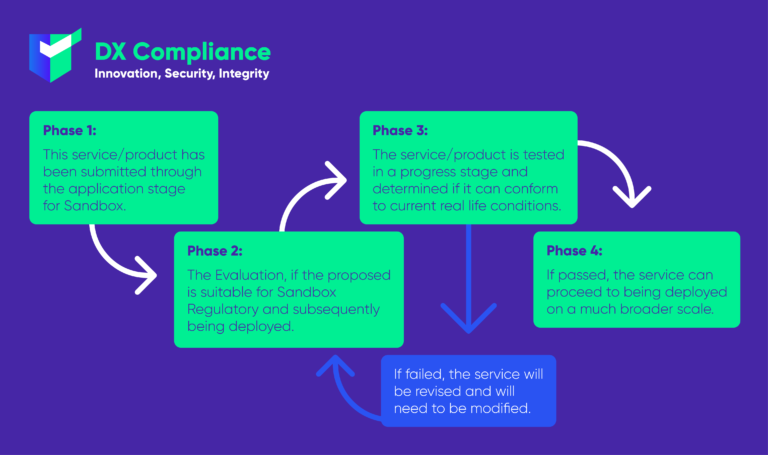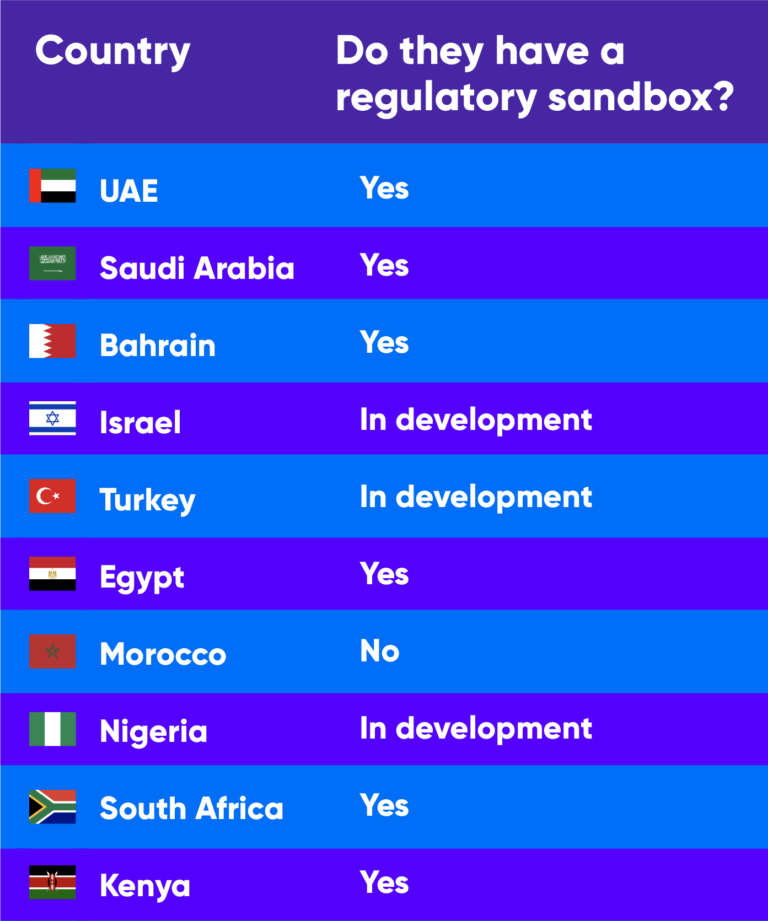13 May 2021, 14:55
Tagline
13 May 2021, 14:55
Tagline
A Regulatory Sandbox is a framework set up by regulators that enables FinTech start-up’s and other innovators to conduct live experiments in a controlled environment aka a “sandbox”. With this, under a regulator’s supervision and specific testing plan allow start-ups to surpass the traditional time duration and financial compliance costings.
Usually provide a specific scheme, which firms can engage with a “Innovation Hub” or “Innovation Community” to raise questions and seek clarifications or non-binding guidance about FinTech related issues in the context of compliance with the regulatory framework, licensing or registration requirements, and regulatory expectations.
Sandboxes play a large role in many innovation ecosystem’s as it allows regulators to gain a better understanding of the product or service. Sandboxes also determine what or if any regulation is needed to protect consumers and the financial system. This for Fintech businesses and start-ups the opportunity to offer their product and or service to the public but on a small and safer scale basis while being closely monitored for these regulators.
In turn, these regulators keep track of the products/services activity and determine if it is viable for mass market as well to if and how it should be regulated. Seen below is an overview of the process for the regulation and application for Sandboxes.

A Fintech regulatory sandbox provides fintech innovators with insights into their customers journey and the in behaviour their movements before being launched into market. As a start-up this is incredibly beneficial as it saves resources by avoiding systemic errors and risks.
Additionally, it provides empirical data into the potential risks and impacts of the service/system in the real life market.
With cybersecurity, sandboxing is primarily used as a method to test software that could end up being categorised a safe or unsafe for public use. The software code would be ran through mediums of (ML) Machine Learning algorithm or other types of (AI) Artificial Intelligence that will deem it as safe or that will be needed for closer inspection/determination.
Primarily cybersecurity sandbox regulations, was implemented in order to prevent such virus hacking through malware and other online threats.
The MENA Region has begun to implement and uptake the use of regulatory sandboxes from the late 2016’s.
Have been leading the front with the announcement by Abu Dhabi Global Market (ADGM) in November 2016, being the first regulatory sandbox in the Middle East and North Africa (MENA) region, ADGM RegLab.Which cleared the path in 2017 for both Dubai Financial Services Authority (DFSA), located in Dubai International Financial Centre (DIFC).
Announced the design of their regulatory sandbox and has been an active one in meeting their “2030 Saudi Vision”. Last year, it was announced that the Saudi Central Bank (SAMA) welcomed nine more fintech companies to take part in the sandbox. The sandbox is now home to 30 fintech’s.
Is due to create their own regulatory sandbox. The much liberal styled sandbox doesn’t hold prerequisites to the requirements of having a pre technical testing, solution or location. which makes it possible for any Fintech or Start-up to be admitted into the sandbox and utilise its platform for conceptualising their ideas and build a prototype and test it on customers.
Is said to be home to more than 500 fintech start-ups and holds around 5% global fintech investment, ranking it fifth after China, the United States, Britain and India. However, due to Israel’s three back-to-back elections in 2019 and 2020, has resulted in the freezing of majority of government activity including sandboxes.
Had established a fintech regulatory sandbox and invested $57 million into supporting the innovative financial technology lab (the “IFTL”).
Released the approved standards and framework for Regulatory Sandbox operations after only 7 months of its initial first drafting.
Intergovernmental Fintech Working Group (IFWG) has rolled out an innovation hub and regulatory sandbox to boost fintech firms’ offerings and productivity to help the financial services industry in the country with testing due to begin in July 2020.
Has admitted its first 3 fintech start-ups to the regulatory sandboxes in early 2020 through Capital Markets Authority’s (CMA) with a slow pick-up since then.
Primarily the benefits is that FinTech and other Start-ups are able to test their software in an isolated environment and provide insights to further improvement and development to these applications require to enhance the end customer’s experience other benefits include:
· To increase the potential innovative business models
· To reduce time-to-market
· Test software changes before they go live – Developing new code, you can use sandboxing to evaluate it for potential vulnerabilities before it goes live.
· Evaluate potentially malicious software for threats – Working with new vendors or untrusted software sources, you can test new software for threats before implementing it.
· To ensure adequate provisions – Regulations to create an enabling environment for innovation without compromising on safety for consumers and the overall payments system.
· Does not risk your host devices or operating systems – The main advantage of sandboxing is that it prevents your host devices and operating systems from being exposed to potential threats.
From all these benefits and advancements that regulatory sandboxes offer to start-up’s and fintech companies these past five years have shown us that sandboxes can be implanted in all shapes and forms of countries. However, for sandboxes to work and to fully witness its substantial benefits they must be adapted to each country’s context and allow these data sets help other regulators in their research.
Dx Compliance has built our software with the company in mind and offer in-depth and industry proven experience for many types of companies around the globe, if you have any questions or need assistance, please contact us here DX Compliance.

08.08.2022
An overview of recent AML developments in the UAE.
Get access
15.10.2021
The introduction of 6AMLD regulations aims to reduce financial crimes.
Get access
27.07.2021 AML Compliance
Uncovering the PEP and Sanctions Lists and Global Regulation
Get access